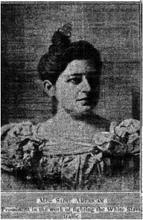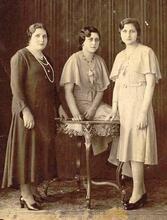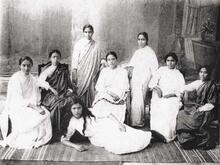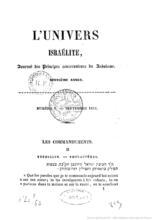Esther Jungreis
Esther Jungreis, a Hungarian-born Holocaust survivor and Orthodox rebbetzin, emerged as a leading outreach activist at a time when few Orthodox women assumed such public roles. Through educational programs, newspaper columns and, especially, public speaking, Jungreis inspired many previously unaffiliated Jews to embrace Jewish religious observance. In 1973, she established Hineni (Hebrew for “Here I am”), an organization that sought to discourage intermarriage and Jewish participation in cults. Jungreis was also known for her matchmaking prowess, especially after the publication of her book The Committed Marriage: A Guide to Finding a Soul Mate and Building a Relationship through Timeless Biblical Wisdom (2003).
Article
A dynamic orator, Esther Jungreis played a significant role in the back-to-Judaism movement in the United States during the 1970s. Born in Szeged, Hungary, Esther was the only daughter of Rabbi Avraham and Miriam Jungreisz. Her two brothers, Jacob and Binyamin, both became rabbis.
Esther, her brothers, and their parents avoided the deportations of Hungary’s Jews to Auschwitz in 1944 because a relative of theirs worked for Rudolf Kastner, the Hungarian Jewish leader whose dealings with the Nazis were later the subject of much controversy. The Jungreis family was among the 1700 Jews whose release was the result of Kastner’s negotiations. The group spent several months in Bergen-Belsen before being allowed to go to Switzerland. Esther and her family settled in the United States in 1947. She married a distant cousin, Rabbi Theodore Jungreis (d. 1996) in 1955, and they had four children: Chaya Sara (b. 1958), Yisrael (b. 1960), Slava Chana (b. 1964), and Osher Anshil (b. 1967).
Her early experiences as an Orthodox rebbetzin, especially speaking at local synagogue events, convinced Jungreis that she had the ability to reach a wider segment of the Jewish community. After hearing Jungreis speak at Catskills hotel in 1971, the editor of the Brooklyn-based Jewish Press invited her to write a weekly column, which she did for the next forty-five years. In 1973, she established Hineni (Hebrew for “Here I Am”), an organization that sought to discourage intermarriage and Jewish participation in cults. In its heyday, Hineni had considerable success on college campuses, and Jungreis spoke to large audiences across the country, including a full house at Madison Square Garden’s Felt Forum in 1973. Her lectures invoked stirring images of traditional Jewish life and the Holocaust and culminated in dramatic pleas to assimilated Jews to explore their heritage.
In 1982, Jungreis and her supporters established the Hineni Heritage Center in New York City, where she and others gave classes. Through the center, her newspaper column, a weekly cable show on National Jewish Television, and lectures throughout the United States and abroad, Jungreis developed a strong following among Ba’alei Teshuvah (Jews from non-Orthodox backgrounds who have adopted Orthodox Judaism). Also known for her matchmaking prowess, Jungreis attracted the attention of Jewish singles, especially in the wake of her book The Committed Marriage: A Guide to Finding a Soul Mate and Building a Relationship through Timeless Biblical Wisdom (2003).
Hineni subsequently branched out, opening a soup kitchen and youth center in Jerusalem in 1998 to provide social and support services for young people with drug and alcohol problems; Hineni also hosts Passover seders for the city’s homeless. In later years, Jungreis remained a prominent figure in the American Jewish community and beyond. She returned to center stage at Madison Square Garden three decades after her first appearance there, when she delivered the benediction at the 2004 Republican Party convention. She also wrote two additional books, Life Is a Test: How to Meet Life’s Challenges Successfully (2006) and Footsteps: Perspectives for Daily Life (2012).
Since Jungreis’s passing in 2016, her children have assumed leadership of the Hineni center, which continues to offer classes on Judaism, singles events, and various religious programs.
Selected Works
“An American Question and Vision,” by Esther Jungreis [text of benediction delivered at the Republican National Convention, August 31, 2004]. Jewish World Review, September 2, 2004.
The Committed Marriage: A Guide to Finding a Soul Mate and Building a Relationship through Timeless Biblical Wisdom (2003).
The Committed Life (1998; transl. to Spanish 2004).
The Jewish Soul on Fire (1990).
Keys, Lisa. “Rebbetzin Esther Jungreis, Still Matchmaking after all these Years.” The Forward, May 16, 2003.
“‘The Jewish Soul on Fire.’” Time, June 15, 1981.
“Reaching the Heart.” The Jewish Homemaker, April 1995.
“The Revivalist Rebbetzin.” Jerusalem Post, July 12, 1974.
“Spirit.” People, May 23, 1977.

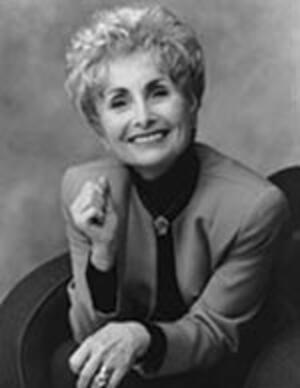
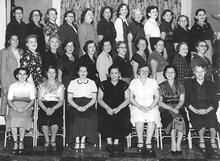
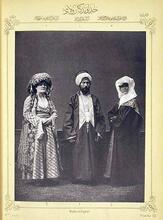
![blue.jpg - still image [media] blue.jpg - still image [media]](/sites/default/files/styles/medium/public/mediaobjects/blue.jpg?itok=RkdKmpf6)

